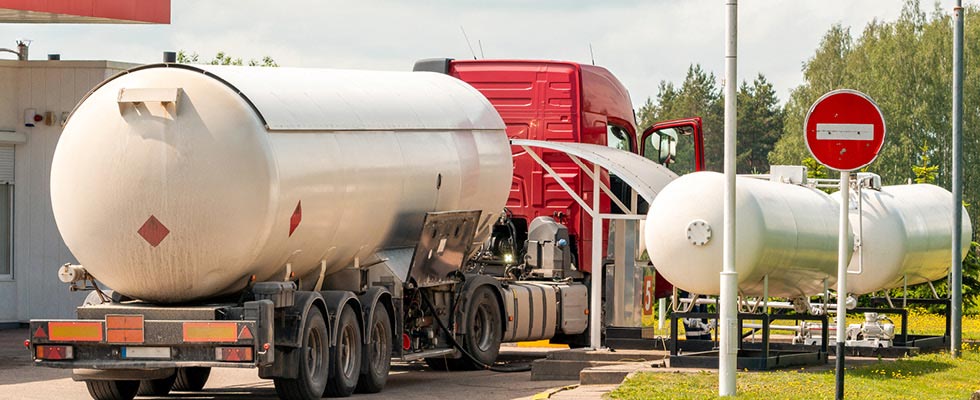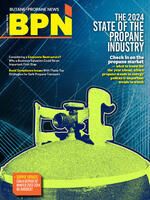
Is your management team overwhelmed with regulatory compliance? Many propane marketers want to do the right thing, but they’re not sure where to begin. By connecting with a propane safety expert and completing a Department of Transportation (DOT) compliance assessment, you can put together a road map of how to incrementally build a regulatory compliance plan. This safety checklist will comprise everything needed for your propane company’s unique situation, identifying areas where you are noncompliant so you can begin the process to get back to where you need to be. After all, it’s impossible to remedy issues you aren’t aware of.
Benefits of a DOT Compliance Assessment
- Entails a comprehensive review process that helps you know where to begin
- Lays out a variety of things you can tackle to optimize your compliance
- Helps you identify shortcomings that could affect your compliance
- Outlines issues that your customers are facing
- Shows the differences you should implement to avoid recurring errors
- Encourages initial and timely recurrent follow-up training
- Identifies processes you are failing on (in the office or on the field)
- Creates a road map for you to achieve regulatory compliance
Avoiding Penalty Fines for Noncompliance
For good reason, propane regulators are strict about safety practices and compliance requirements — that’s why it’s important to meet or exceed these requirements to avoid hefty penalty fines. Though the following is not an exhaustive list, propane marketers can typically expect assessments to include questions about DOT regulations and driver certifications, such as:
- Can the company produce complete and accurate driver qualification files?
- Is there a system that will ensure your drivers’ medical certificates are current?
- Can the company produce a current copy of the Federal Motor Carrier Safety Regulations (FMCSR)?
- Can the company produce 14 months of valid annual inspections for all operating commercial motor vehicle equipment, both tractors and trailers?
- Can the company produce 90 days of valid copies of post-trip inspection reports for each commercial motor vehicle equipment?
- Can the company produce a current DOT security plan?
- Can the company produce a current copy of the Hazardous Materials Registration?
- Are all employees that affect the safe transportation of hazardous materials trained within 90 days of employment and every three years after that on hazardous materials with documentation maintained on file?
- Can your propane company produce everything on the list above within 48 hours if an auditor were to knock on your door and ask for them?
Bulk Plant Requirements for MultiLocation Marketers
In addition to DOT requirements, multilocation marketers can expect a comprehensive assessment to include questions about bulk plant inspections, maintenance and compliance.
Distributed networks should have a bulletproof compliance management platform that aids them with tools, such as a digital filing cabinet (designed for instant recall of documentation completed in the past) and a written policies and procedures manual (to outline the who, what, where and why of each task and increase the consistency and efficiency of its completion).
Functionalities like these will improve your compliance by reducing your stress — no more rifling through filing cabinets for that inspection form completed six months ago, especially when you aren’t even certain in which of your multiple locations to begin your search.
Don’t Neglect Your Training Requirements
One of the biggest hurdles we see propane marketers struggle with is ensuring that new employees are fully trained within 90 days of employment — and before they’re out working on their own. Another is recurrent training every three years for each current employee.
Some marketers will host a safety meeting every three years to cover their existing employees. This works well for many companies, as long as the following requirements are attended to:
- Regular meetings are diligently and consistently scheduled every 36 months
- The new employee onboarding process includes initial safety training
- Employees who were away during the recurrent safety training are kept track of and expected to catch up on what they missed in a timely manner
Locating Training Records
Another important piece of the puzzle is being able to locate training records and produce them when asked. Imagine a DOT auditor showing up at the front door of your propane company and demanding to see proof of your FMCSR compliance. They may give you 48 hours to collect all the necessary documentation — but that won’t be nearly enough time if you haven’t kept up with your requirements or documented them in an easy-to-recall way.
A Big Mistake Many Make
We’ve helped marketers in the past who rely on their branch managers to keep track of initial and recurrent safety training requirements. The problem is when these safety managers left the company, so did their knowledge of when the last training was completed. Best practice says to store all safety documentation in a centralized dashboard that is easily accessible to your entire management team without relying on a single person’s cognitive organization to monitor and schedule recurrent safety training.
Now’s the Time to Assess
Don’t be caught in a pinch when a DOT auditor comes knocking. Instead, get ahead of the curve by assessing your own DOT compliance and testing your ability to recall important safety documentation.
Begin with a compliance assessment from a propane safety expert near you, creating a road map for your company to follow to obtain complete regulatory compliance and avoid penalty fines and danger to your customers, your employees and your company.


